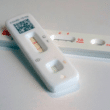The first time Emma Heming Willis has spoken about her husband Bruce Willis’s dementia diagnosis was during an exclusive broadcast appearance on TODAY. World Frontotemporal Dementia Awareness Week, which ran from September 24 to October 1, fell on the same week as this interview.
Emma Heming Willis discussed her experience as a caregiver for a person with frontotemporal dementia during her chat with TODAY co-anchor Hoda Kotb. This discussion put attention on the difficulties faced by families dealing with this condition.
As dementia is actually a family disease, Heming Willis underlined the challenges faced by those who have been diagnosed as well as their families. She added that it’s doubtful Bruce Willis is fully cognizant of his predicament.
When Bruce Willis’s family disclosed that he had been diagnosed with aphasia and had decided to stop performing, the world first learned about his health problems in March 2022. Language processing and communication skills are impacted by aphasia.
Bruce Willis was diagnosed with frontotemporal dementia in February 2023, according to information released by his family. This syndrome varies from Alzheimer’s disease in that it predominantly affects the parts of the brain responsible for language processing, producing unique symptoms.
The signs of frontotemporal dementia, which include speech impairment, personality and behavior changes, and issues with executive functioning, which involves goal setting and goal attainment, sometimes result in incorrect diagnoses.
Emma Heming Willis said that while it was challenging to comprehend her husband’s diagnosis, it was a mixed gift because it clarified their predicament.
She stressed the significance of self-care for caregivers to provide the best assistance to their loved ones by referring to herself as a “care partner” as opposed to a caretaker.
Heming Willis emphasized the benefit her husband has brought to their daughters by instilling in them virtues like love, patience, and fortitude.
She also underlined the value of looking for support and assistance, contacting groups like the Association for Frontotemporal Degeneration (AFTD) for assistance.
Emma Heming Willis is using her platform to spread awareness about providing care for people with frontotemporal dementia during World FTD Awareness Week by posting new films with experts every day to her YouTube channel.
The article’s conclusion offers frontotemporal dementia tools and information, such as diagnostic checklists, webinars, and support alternatives provided by the AFTD. The AFTD HelpLine’s tools and advice for people with frontotemporal dementia are urged to be accessed by readers.












